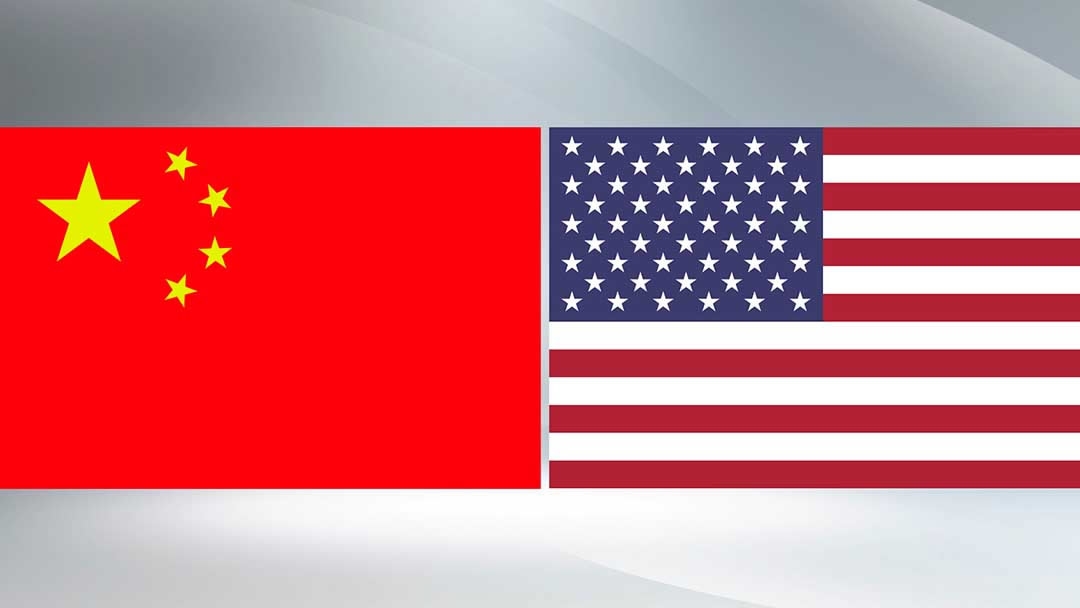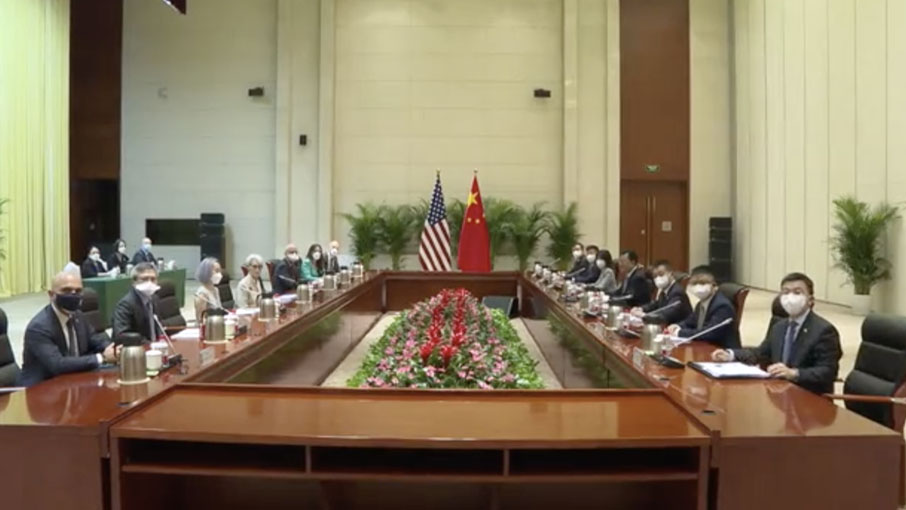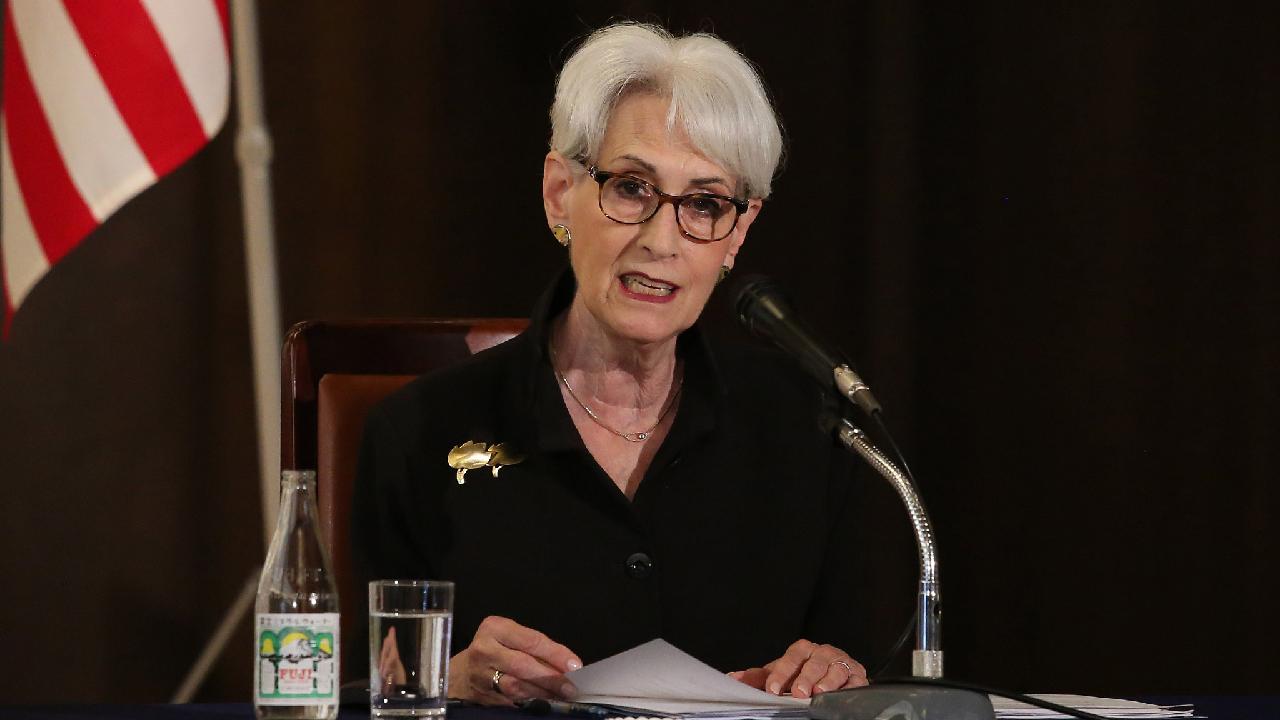02:43

Six months after U.S. President Joe Biden took office, the U.S. Deputy Secretary of State Wendy Sherman is visiting China on Sunday, with talks with her Chinese hosts taking place in the northern city of Tianjin. This is the second in-person official meeting between representatives of the two countries this year after senior officials met in Alaska in March.
The Chinese Foreign Ministry said the U.S. side proposed the meeting. Xie Feng, China's vice foreign minister who is also in charge of the China-U.S. relations, will hold talks with Sherman during her two-day visit. Chinese Foreign Minister and State Councilor Wang Yi will also meet the U.S. envoy, according to the Foreign Ministry.
Da Wei, assistant president of the University of International Relations in Beijing, said reports by some Western media questioning the reception protocol are "pointless speculation" and argued that the choice of the coastal city of Tianjin instead of the capital as the meeting place is in line with pandemic prevention measures.
"We haven't had have foreign officials visiting Beijing in recent months because of the need to control the pandemic," Da told CGTN.
He said the U.S. Special Presidential Envoy for Climate John Kerry also went to another city, Shanghai, when he visited China earlier this year and met with Chinese officials there.
"Visiting a major city outside of Beijing is a rational choice. Tianjin is also very close to Beijing. It's quite convenient for officials to travel to Beijing," Da said.
China is the last leg of Sherman's overseas trip that has already taken her to Japan, South Korea and Mongolia.
00:23

The atmosphere between China and the U.S. remains tense ahead of the visit.
The U.S. has accused China of cyberattacks and sanctioned seven Chinese officials on issues related to Hong Kong. China announced it would impose sanctions on several U.S. individuals and entities in retaliation.
The U.S. official description of Sherman's visit to China only added fuel to the tensions.
In a press release on Wednesday, Ned Price, a spokesperson for the U.S. State Department, said the meetings are part of ongoing U.S. efforts "to hold candid exchanges with People's Republic of China (PRC) officials to advance U.S. interests and values and to responsibly manage the relationship." Sherman will continue to speak to China "from a position of strength," Price added.
In response, Chinese Foreign Ministry Spokesperson Zhao Lijian slammed the U.S. statement as arrogant and overbearing.
"We didn't buy it in Anchorage, and we surely won't buy it in Tianjin," Zhao said on Friday, adding that "China will continue to make clear its principles and stance out on the bilateral ties, and firmly defend sovereignty, security and development interests" during Sherman's trip.
Despite the frayed relations, experts have emphasized the significance of a face-to-face meeting. Zhu Feng, professor of International Relations at Nanjing University, said the biggest challenge the U.S. and China now face is rebuilding trust and respect.
"We need some sort of political insurance from Washington. Don't just attack China as a punchbag; otherwise, China will also be reacting in a very harsh way," said Zhu.
01:49

Amid rivalry, cooperation is also needed and expected between the two powers, ranging from climate change to regional security and stability.
However, to put the bilateral ties finally back on the right track, Zhu said the key issue lies in the U.S. laying out basic principles to handling its relationship with China.
"For example, they should stop irritating China on one-China policy and stop their intervention in China's domestic affairs, such as Hong Kong and Xinjiang," Zhu said.
Da, from the University of International Relations, said Washington's China policy has changed from engagement or cooperation to competition since 2018, and containing China has become a bipartisan consensus in the U.S. This could explain why Biden's China policy is a continuation of his predecessor's administration.
But he also pointed out the differences between the two U.S. governments.
"I think the Biden administration wants to compete with China. That could be a healthy competition, at least that could be a limited competition," said Da.
"Competition is different from confrontation. We need to find out the differences and nuances between the two administrations and try to grab the opportunity," Da added.
Experts said the trade war and the COVID-19 pandemic have sent the China-U.S. relationship on a downward spiral and restoring confidence is not easy. But at least in-person meetings may be a good start to address concerns and stabilize bilateral ties.
"I hope Sherman's visit could serve as a chance to reopen higher-level talks," said Zhu.
(Cover image: U.S. Deputy Secretary of State Wendy Sherman. /Reuters)

